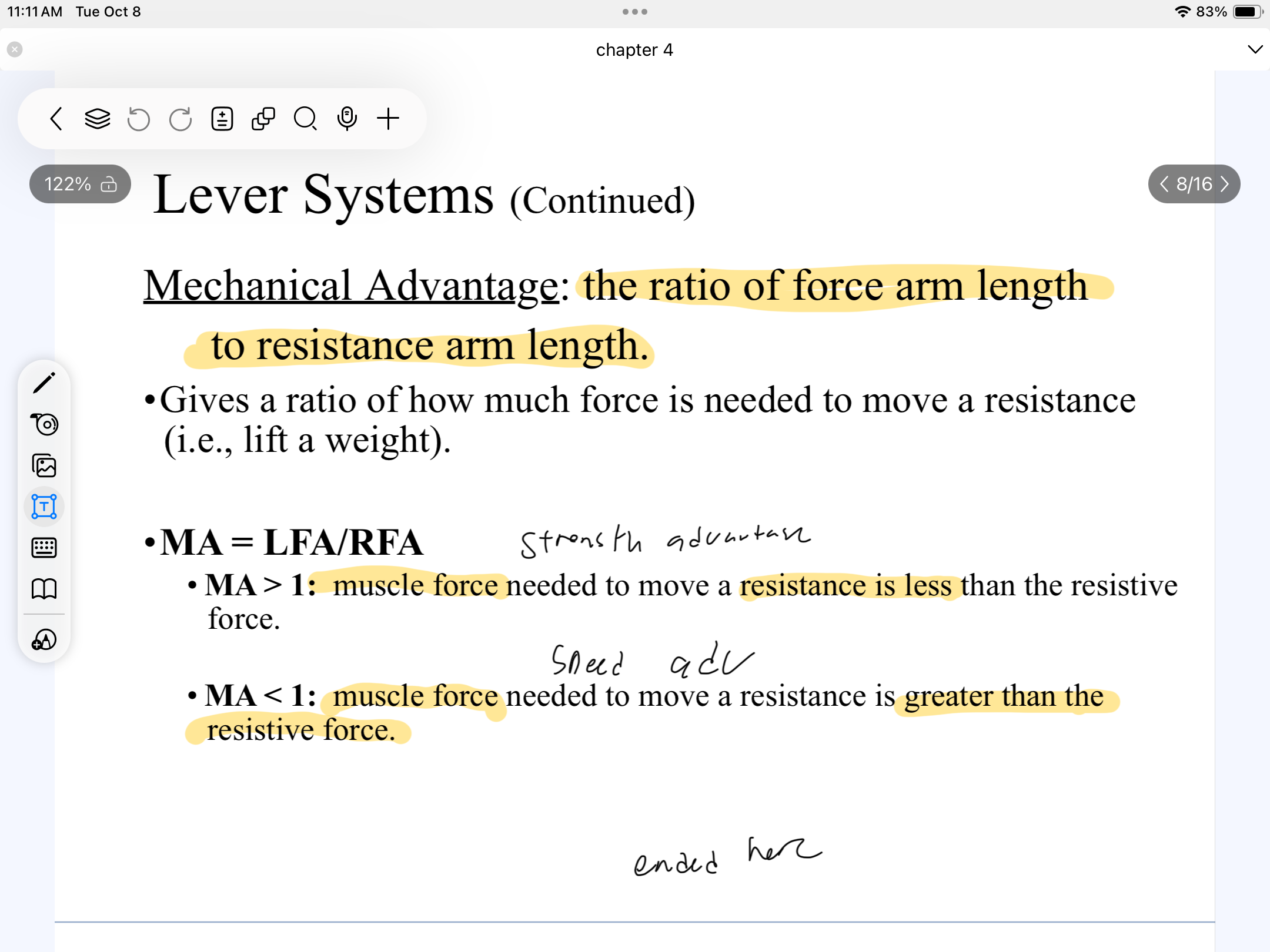What is the definition of Mechanical Advantage in lever systems, and what does it mean when MA is greater than or less than 1?

Understand the Problem
The question is asking about the concept of Mechanical Advantage in lever systems, specifically how it relates to the ratio of force arm length to resistance arm length and what the implications of MA being greater than or less than 1 are.
Answer
Mechanical Advantage in levers is the ratio of force arm length to resistance arm length. MA > 1: force multiplier. MA < 1: speed advantage.
Mechanical Advantage (MA) in lever systems is the ratio of force arm length to resistance arm length (MA = LFA/RFA). MA > 1 means the muscle force needed is less than resistive force (force multiplier). MA < 1 means the muscle force needed is greater than resistive force (speed advantage).
Answer for screen readers
Mechanical Advantage (MA) in lever systems is the ratio of force arm length to resistance arm length (MA = LFA/RFA). MA > 1 means the muscle force needed is less than resistive force (force multiplier). MA < 1 means the muscle force needed is greater than resistive force (speed advantage).
More Information
Mechanical advantage is a crucial concept in physics and engineering, helping to understand how levers and other simple machines make tasks easier by amplifying force or speed.
Tips
A common mistake is confusing MA with efficiency. Efficiency considers energy loss, while MA is purely about force ratios.
Sources
- Mechanical Advantage - Study.com - study.com
- Simple Machines - Levers - Let's Talk Science - letstalkscience.ca
AI-generated content may contain errors. Please verify critical information